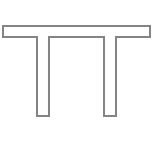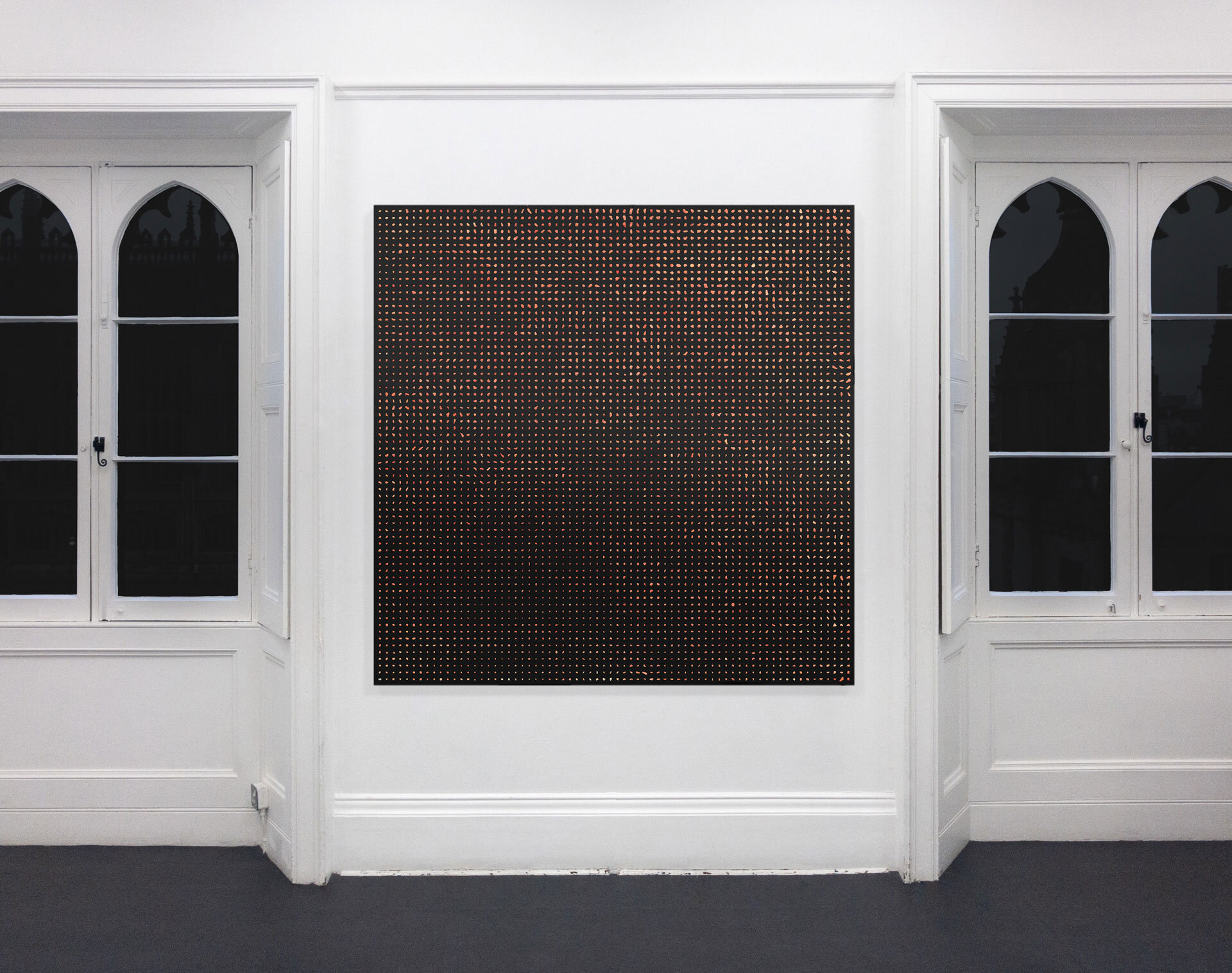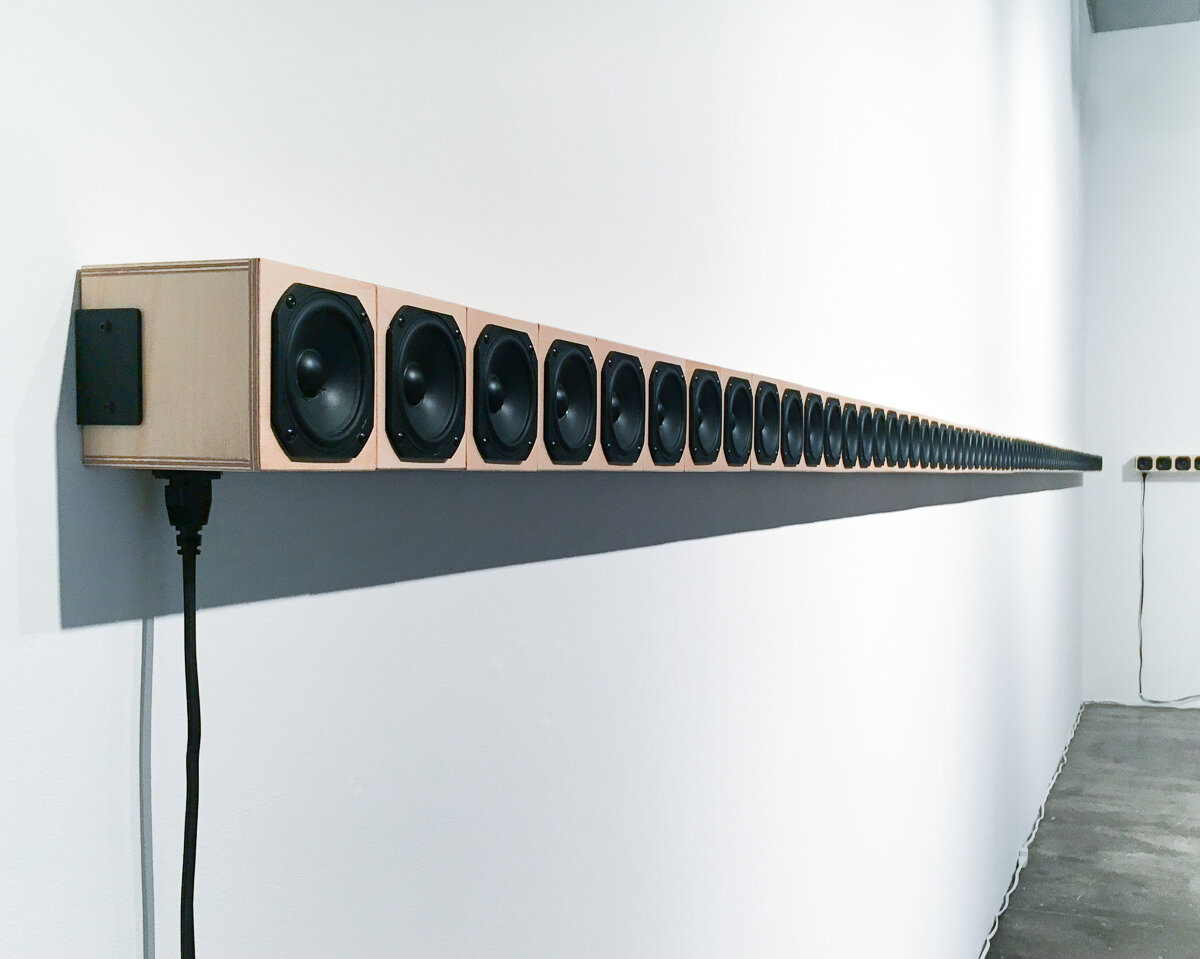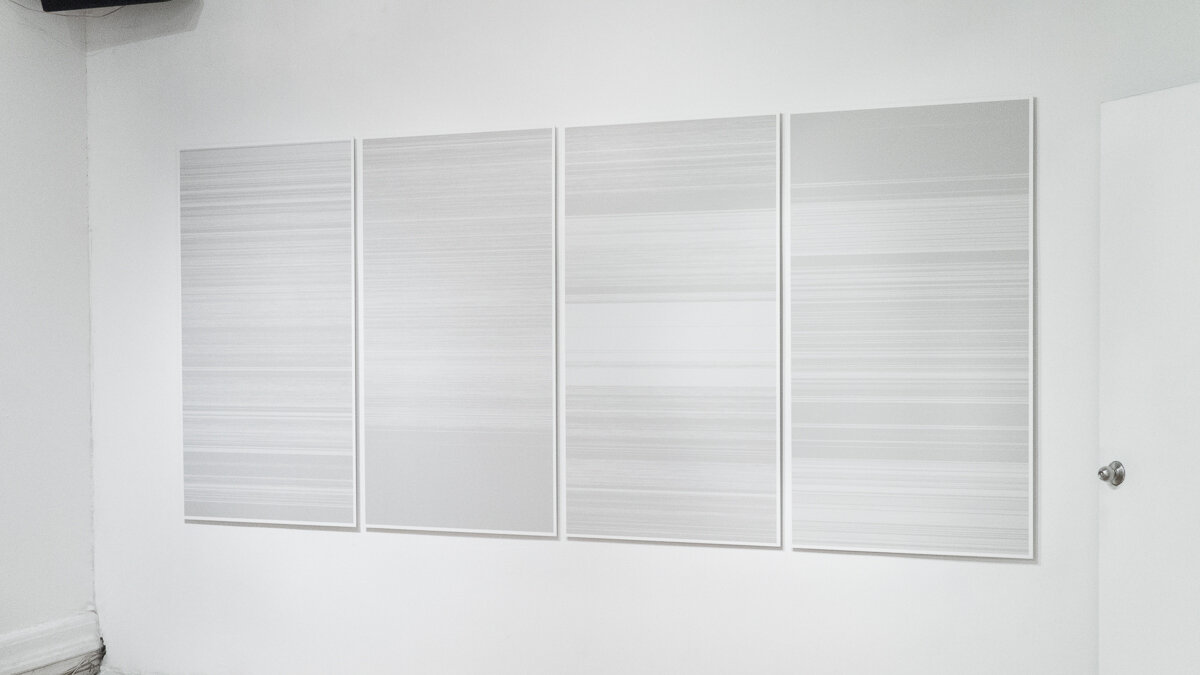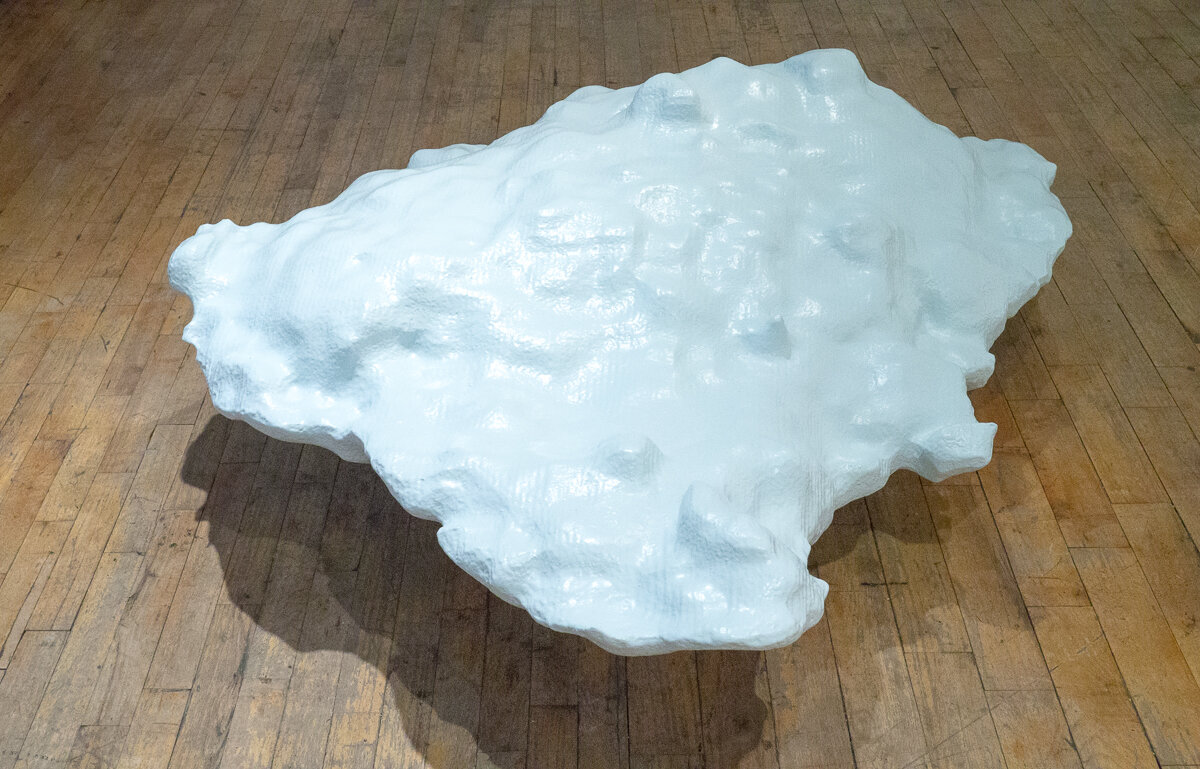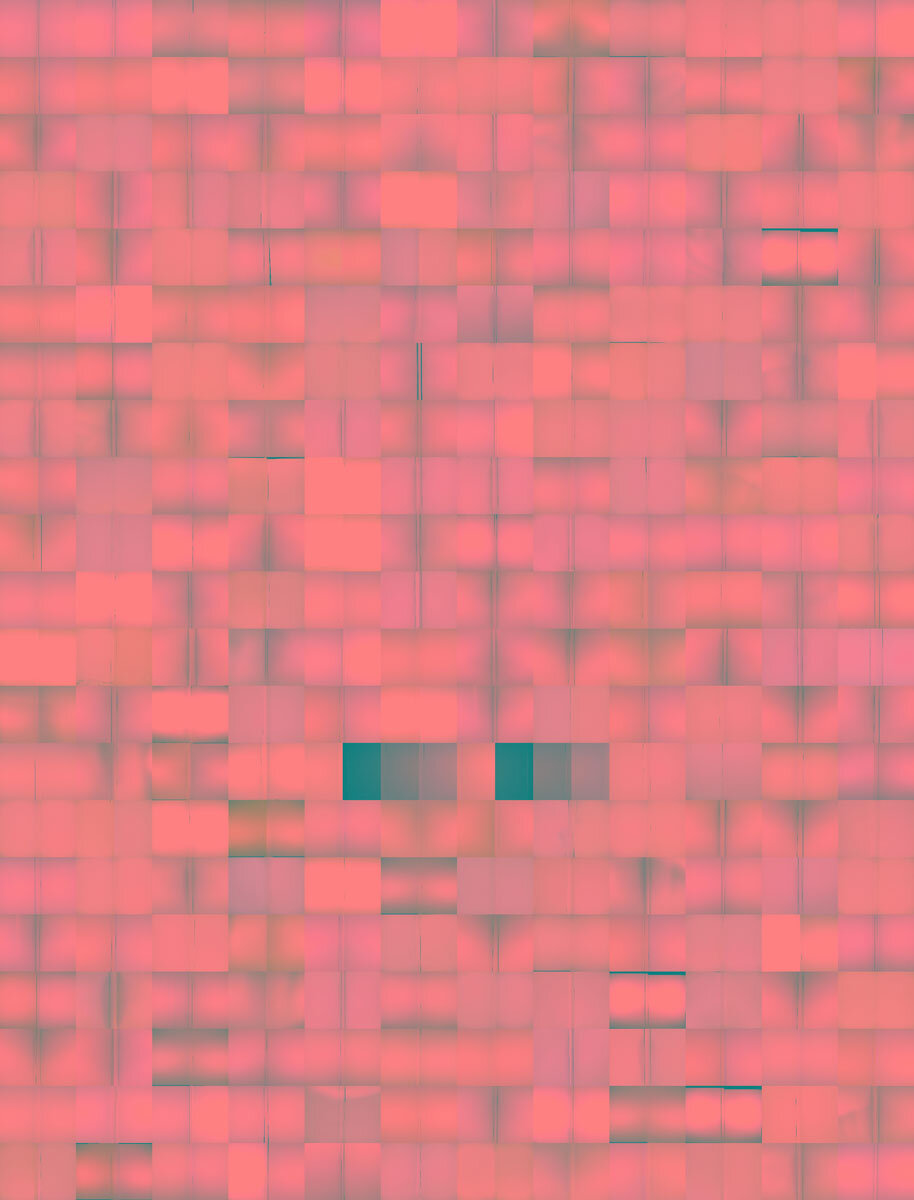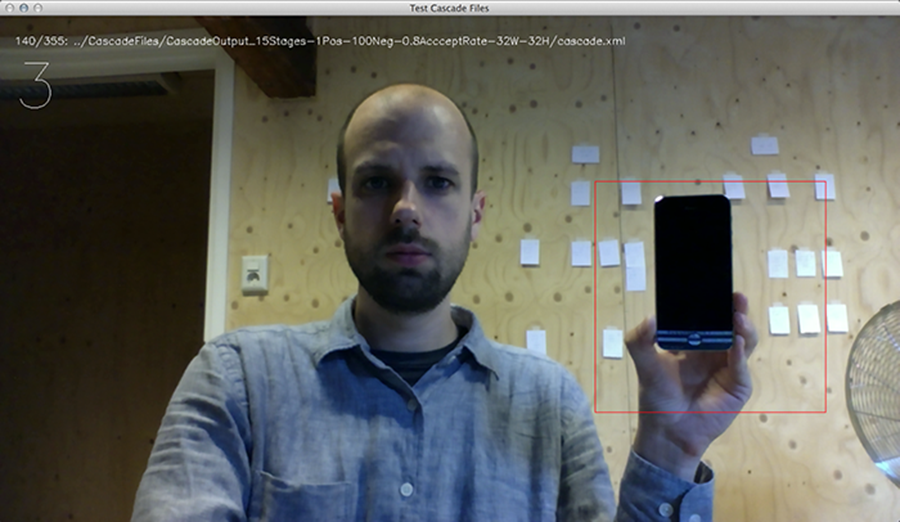Jeff Thompson
Jeff Thompson (b. 1982, Minneapolis/USA) is an artist, programmer, and educator based in the NYC area. Through code, sculpture, sound, and performance, Thompson's work physicalizes and gives materiality to otherwise invisible technological processes.
Thompson has exhibited and performed his work internationally at venues including the Museum of the Moving Image, Tufts University, Fridman Gallery, Somerset House, Sheldon Museum of Art, Drugo-more, Salzburger Kunstverein, and the Bemis Center for Contemporary Art. Recent commissions and residencies include SPACES, Bell Labs, the Computer Laboratory at University of Cambridge, Abandon Normal Devices, Brighton Digital Festival, Impakt, Rhizome, Turbulence, Harvestworks, and Holland Computing Center, the supercomputing facility for the University of Nebraska system. With Angeles Cossio, Thompson co-founded the experimental curatorial project Drift Station, which has mounted exhibitions and publications across the US and online.
Thompson earned an MFA from Rutgers University in 2006. He serves as Assistant Professor and Program Director of Visual Art & Technology at Stevens Institute of Technology.
Practice includes:
new media, digital art, creative programming, sound art, physical computing, electronics, data visualization, interactive media, net art, performance, book arts, sculpture, robotics
Practice Statement
My work makes visible the complicated physicality and poetics of technology, in particular how we use computers to order and represent the world. Through historical and technical research, digital dumpster-diving, building new tools, and by creating conceptual structures in the studio, I gather collections of materials, often massive and found or crowdsourced: images of pebbles, screenshots of computers in popular media, photographs of apartments for rent, interactions with my phone. These are transformed into project-based works that take the form of code, sculpture, sound, and performance, often modulating back-and-forth between the digital and physical.
These massive datasets, either found or made, are the dirt and cruft of the world; thousands of specific instances that get churned and abstracted into black-box systems used for everything from identifying objects in photographs to suggesting to a judge if someone should be paroled. My work seeks to make that mess and its labor visible, in all its humanness and futility. In doing so, the beauty of the specific is contrasted with the immense abstraction created when we reduce things to data to systems. Yet the friction between the digital and the physical is, in the end, circular: software is not virtual and nearly everything today is digitized, but what we choose to record (and don’t) and how we collect shapes our experience of the world.
My practice regularly involves interdisciplinary collaborations and non-traditional tools, manifesting not only as artworks but also as code repositories, tutorials, writing, and curatorial projects that echo out from the studio, resulting in experiential and non-linear projects that unravel the idea of the unique art object and the traditional materials and sites of artistic work.
Related research & practice areas:
curatorial practices;
expanded studio practices;
liminal states, interstices, and spacetime;
media and design;
new materialism, object-oriented ontology;
publishing as an art practice;
robotics
sound, music, field recordings, composing;
